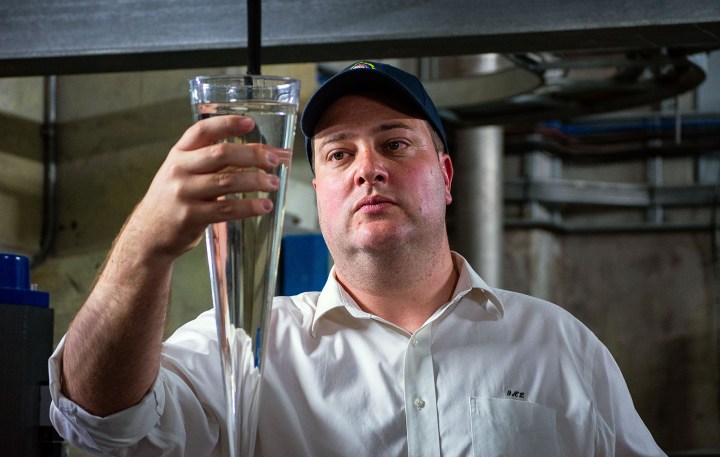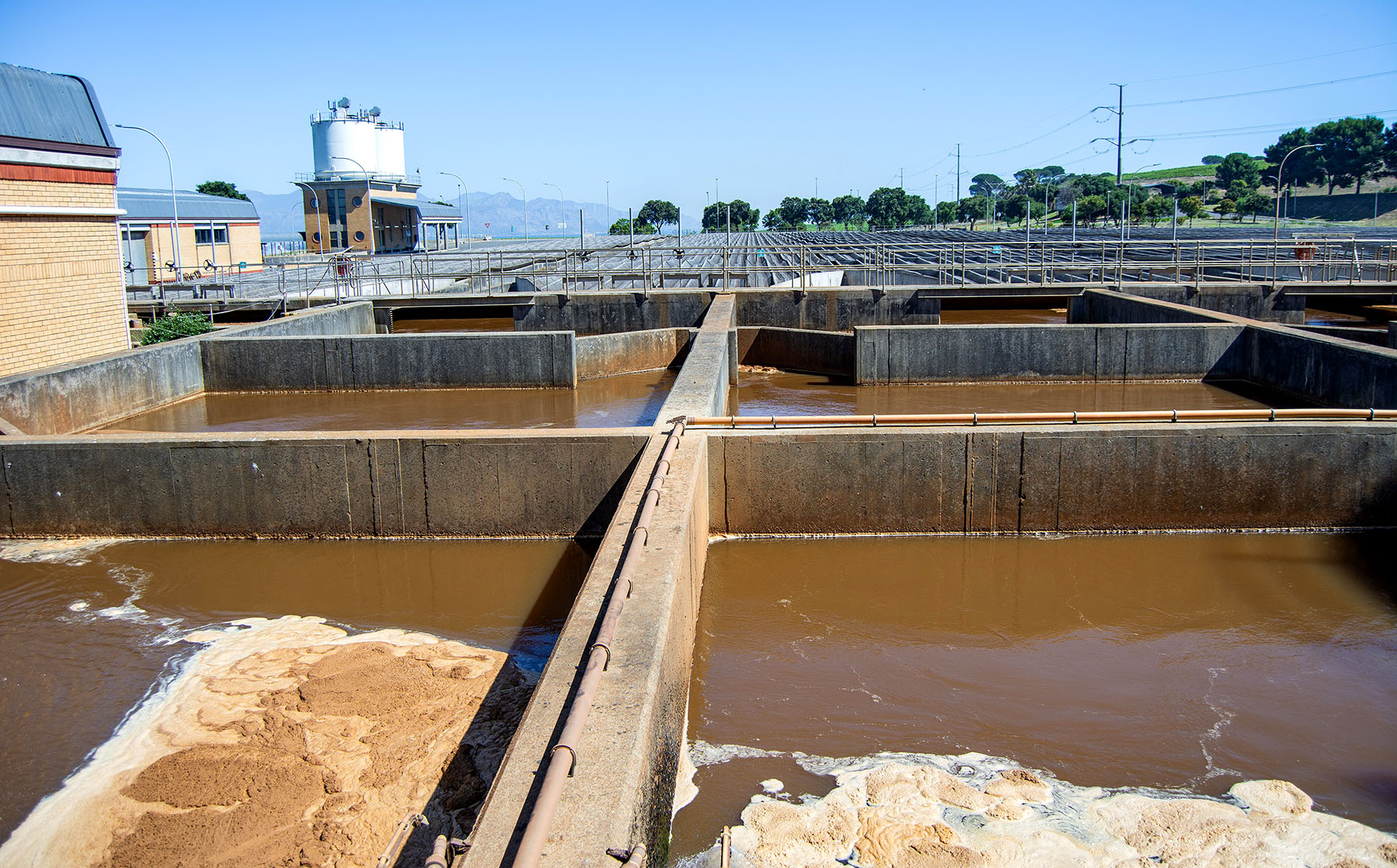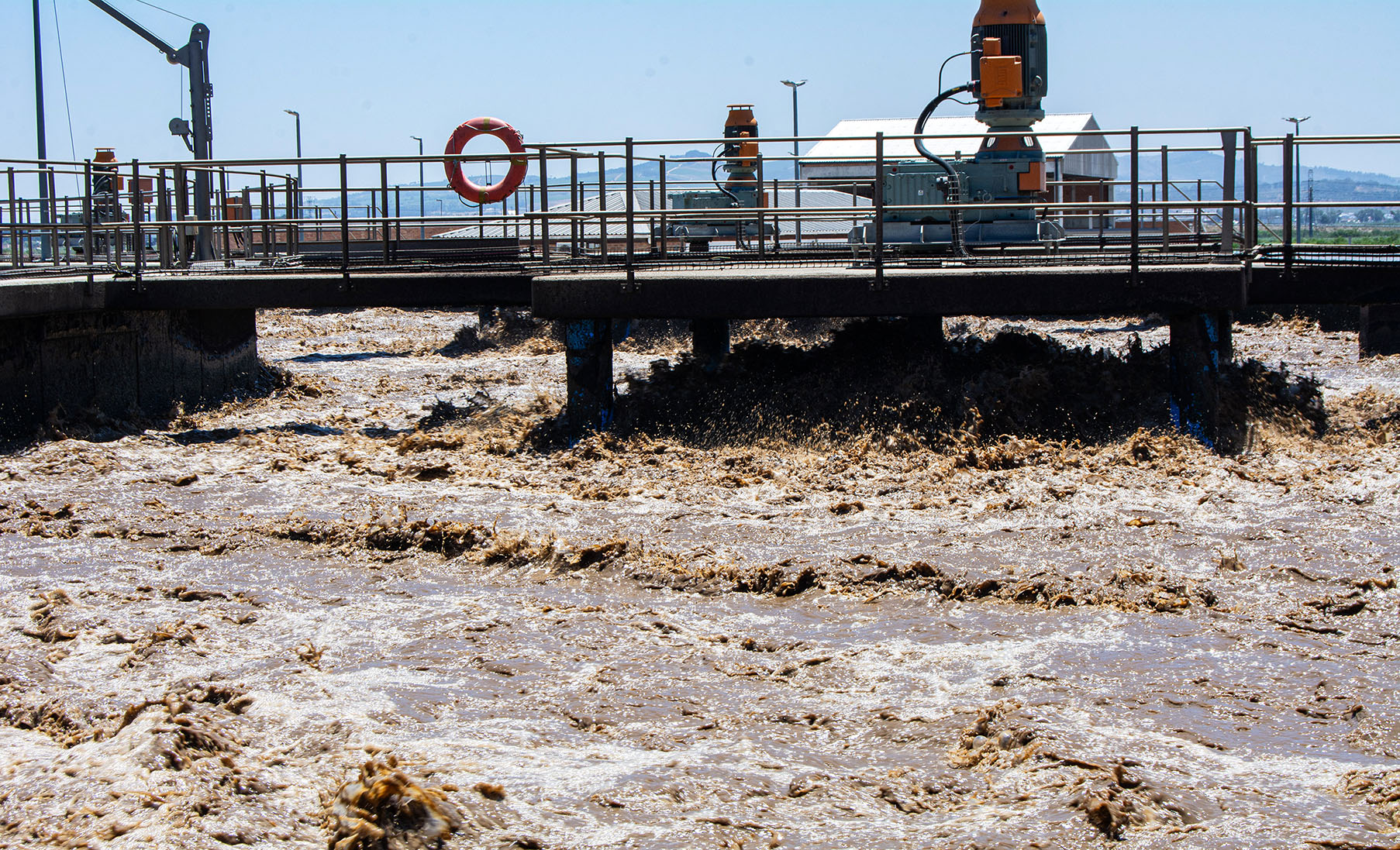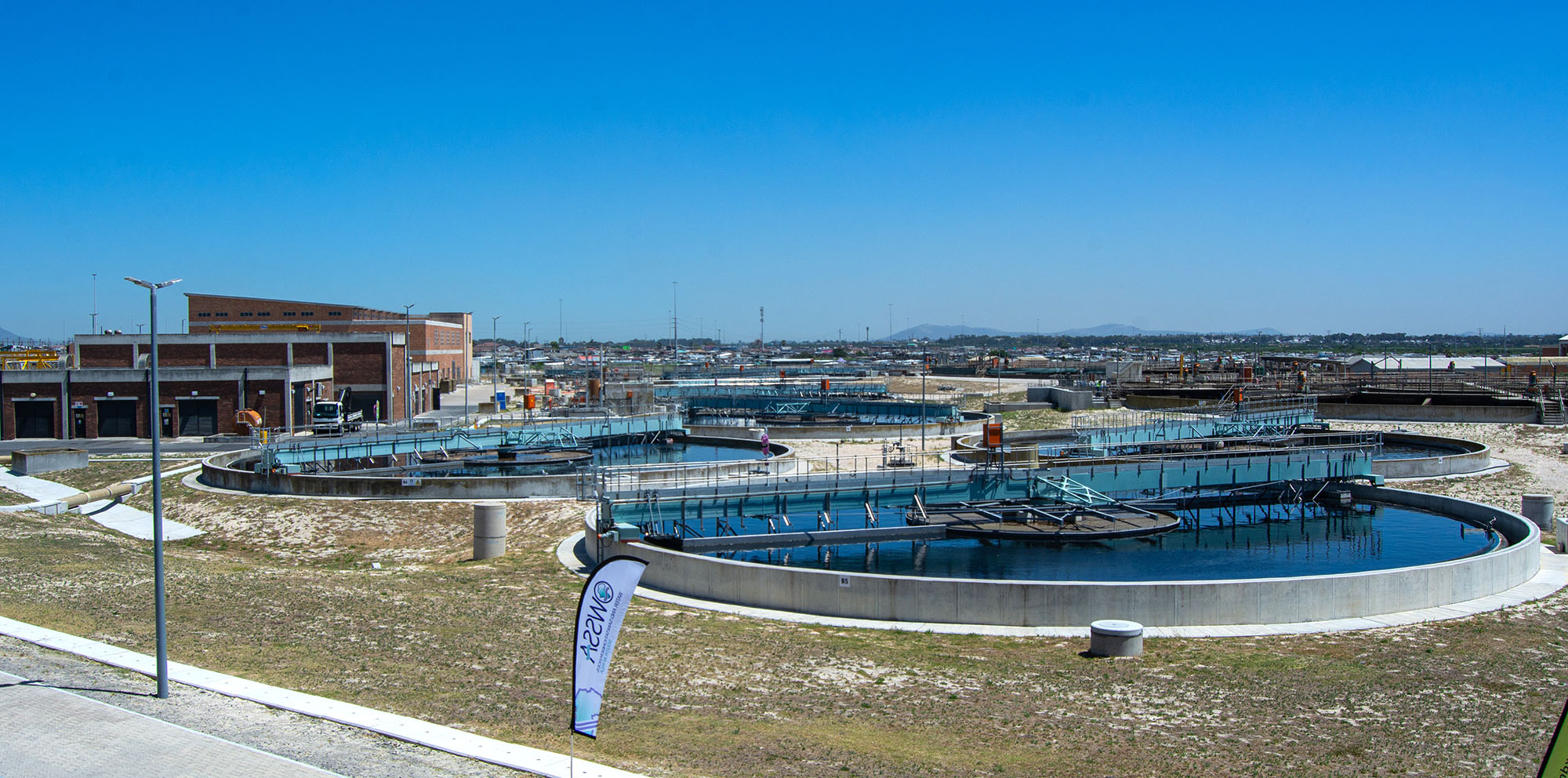LEST WE FORGET 'DAY ZERO'
Cape Town set to purify treated sewage water for drinking purposes

The City of Cape Town is trying to reduce reliance on rainfall by implementing water reuse and reclamation technologies. This comes as mayor Geordin Hill-Lewis warns of a risk that the city will encounter the water challenges faced by Perth, Australia, which has undergone a 40% reduction in rainfall over the past 20 years.
As climate uncertainty wreaks havoc across the globe, the City of Cape Town announced that water reuse will make up to 7% of the city’s total bulk potable water supply by 2040 as part of its broader New Water Programme.
This programme aims to add 300 million litres of water a day from new sources by 2030, mainly from seawater desalination, groundwater extraction from two major aquifers, and now, water reuse.
While not sufficient to completely protect Capetonians from future climate change-accelerated droughts, these new water projects will lessen the severity of water restrictions when they need to be implemented in the future.

A state-of-the-art scheme is expected to be built at the Faure Water Treatment Plant to the east of Cape Town, which will source treated wastewater from the recently upgraded Zandvliet Wastewater Treatment Works, and then put this through an advanced water purification process to produce potable water.. (Photo: Ziyanda Duba)
This technology is used worldwide in cities like Perth, Nairobi, Los Angeles, Wulpen, Windhoek, and right here in Beaufort West and George.
It forms part of the city’s multibillion-rand attempt to ensure Cape Town is resilient against severe future droughts after the harrowing Day Zero experience of 2018.
During the city’s International Water Re-use Conversation held last week, mayor Geordin Hill-Lewis said: “The whole point is to build the concept of resilience. We don’t want to be vulnerable in the future to what Perth has experienced… they have had a 40% reduction in rainfall, not just for a year or two, but for 20 years. The rain has simply not come back, and we believe there is a risk of that happening in South Africa and Cape Town in particular.”
The Western Australian Water Corporation predicts a 40% decline in rainfall by 2060, and the need for an additional 365 gigalitres of reticulated drinking water for Perth and surrounding towns – equivalent to 146,000 Olympic-sized swimming pools.
However, Perth rose to face its declining water availability early by reducing its reliance on rainfall and increasing capacity and reliance on the use of desalination, groundwater and water reuse. The City of Cape Town intends to follow this path with similar projects coming online in the next few years.
Lessons from Perth
In an interview with Daily Maverick during the city’s International Water Reuse Conversation, Perth Mayor Basil Zempilas said they had been fortunate in Western Australia to significantly advance their sources of water.
Like Cape Town, Perth relies heavily on rainfall, but it has reached a point where rainfall provides only a third of the water supply; another third is from desalination and the rest is groundwater.
By reducing the reliance on rainfall, Zempilas said they had spread the load effectively and that this had made a huge difference. They had been pushing forward into desalination – water treated from the Indian Ocean – and then found ways to use groundwater more effectively by treating it and adding it to their drinking supply.

The Faure Water Treatment Plant and reservoir. A state-of-the-art scheme will be built here where treated wastewater from Zandvliet Wastewater Treatment Works will be further purified to potable water standards. (Photo: Ziyanda Duba)
“These are the opportunities that I see here in Cape Town… It’s remarkable how similar our situations are. Water reuse remains a priority in Perth, but more so for things like irrigation, watering the lawns, and those sorts of things. Not as much for drinking, and possibly we have not been as committed to that journey yet because we’ve been able to use desalination and groundwater,” he said.
Following the Day Zero event in Cape Town, residents adopted and continue to implement water-saving habits such as using their bath and shower water to water gardens, fill their cisterns and so on.
Read more in Daily Maverick: Have we already forgotten Cape Town’s crippling Day Zero drought?
In Perth, Zempilas said, residents were not on the same level of awareness as Capetonians, but because of their decades-long water challenges, Perth had implemented water-saving initiatives such as rosters for residential sprinkler use.
Residents are only allowed to use their sprinklers on certain days for no more than around 15 minutes. Should residents contravene this measure, they can be fined, face a court-imposed sanction or have their water use restricted.
Perth has also focused on educating youngsters about water challenges and better water habits. Over the past 20 years, an education programme has been taught in primary schools and high schools where learners are informed about water as a critical resource and how to manage it in the face of a changing climate.
“This is important because this culture of change – of treating water with the respect that it deserves – is starting at a very young age in Perth and indeed throughout Australia,” he said.
The idea of the city’s International Water Reuse Conversation was to bring together cities that were using water reuse technologies, to say, “This is normal, this is used everywhere around the world, and this is our water future here in Cape Town as well if we want to protect ourselves against future Day Zeros,” said Hill-Lewis.
“We don’t want to be caught as we were in 2017 and 2018 with a Day Zero scenario. We cannot rely on our dams alone in the future… we have to rely on new sources of water.”
Water reuse and reclamation in Cape Town
In Cape Town, a state-of-the-art scheme is expected to be built in the coming years at the Faure Water Treatment Plant to the east of the city, which will source treated wastewater from the recently upgraded Zandvliet Wastewater Treatment Works, and then put this through an advanced water purification process to produce potable water.
This will then be blended with dam water to augment the water that feeds the plant in Faure – the city’s largest water treatment plant – and then distributed into Cape Town’s water supply.
“We are excited to be joining many other cities across the world who are already implementing water reuse for long-term sustainability, in some cases for over half a century already,” Hill-Lewis said.
This water reuse and reclamation project will cost the city up to R5-billion and construction is expected to start next year.

The upgraded Zandvliet Wastewater Treatment Works in Macassar, Cape Town. (Photo: Ziyanda Duba)
“Our target is to have all these new water projects done by 2030, but this project will be done sooner, probably 2027,” he said.
When asked how safe this reused water will be for drinking, Hill-Lewis said, “It will be the highest quality drinking water… even better quality than bottled water. It will be pumped back into the dams, and then treated again as water from our dams normally is.”
Lessons from Day Zero
Cape Town’s recent drought highlighted the urgent need for robust planning given the demands of rapid urbanisation and climate uncertainty.
Zahid Badroodien, Mayoral Committee Member for Water and Sanitation, said, “While our dams and systems are designed for a 98% level of supply assurance, the three-year drought was a one-in-590-year event. Embracing the uncertainties of climate change, we must plan for the unknown, ensuring the resilience of our water sources.”
If the city is not proactive, Cape Town will continue to be exposed to the risks that resulted in the Day Zero water crisis. Badroodien said these risks, including climate change and the spread of invasive alien vegetation, were likely to increase, and as the city’s population and economy grew, so too would the water demand.
To minimise the potential for future water crises, about R10-billion of the city’s R30-billion capital expenditure will be invested in water and sanitation infrastructure over the next three years. DM




















Doesn’t Capetown have an ocean nearby? They are generally loaded with water. Why use sewage with all the concentrated impurities?
desalination is a power-intensive, expensive process. additionally, it outputs a huge amount of hyper-salty brine, which needs to be disposed of somehow. piping the brine into the ocean has severe consequences on fishing populations and other marine life.
Recycling sewage effluent is apparently 60% of the cost of desalination, according to the city’s own figures. However, the risks from desalination are ‘severe consequences for the marine life’.
That’s bad, but the risks from the city getting reuse wrong are far worse – poisoning our aquifer, and our drinking water with chemical contaminants, like PFAS.
USA are upping their water standards, but the problem is, we’re not. And so we’re only holding the city to account to our outdated SANS241 standards, and who’s going to hold them to account anyway? National government is not capable.
I’m not allowed to post links, but a CNN article on USA drinking water standards, and PFAS, from 15th March 2023, characterised PFAS contamination as “one of the most pressing environmental and public health concerns in the modern world…
The problem is… CoCT is using South Africa’s SANS241 water quality standards, but these are outdated. In the USA, their new water standards specify persistent pollutants, but ours don’t. So if our water fails to meet proper safe standards, who is going to hold the city to account? National government’s DWS is certainly not up to that task.
Desalination is about 40% more expensive, but far less risky. But if things go wrong with ‘reuse’, the CoCT risks poisoning our drinking water.
Also there’s been no proper public participation on this.
And how can we trust CoCT to get this right, when they can’t even seem to monitor our marine outfalls as per the permit conditions, which has now resulted in criminal charges against the city.
And in Perth, they’re NOT drinking it?
According to the article: “Water reuse remains a priority in Perth, but more so for things like irrigation, watering the lawns, and those sorts of things. Not as much for drinking, and possibly we have not been as committed to that journey yet…”
A pedantic point on a well-written article. You would not “blend” purified (potable standard) water with dam water, you would mix it. Pure water is pure water regardless of the source. I used to point out to my students that all water is recycled water (the water cycle) and that they might well be drinking water which was once part of a dinosaur, or even one of their forebearers. The looks on the faces!
Like with Eskom you have a backup system, you should have two 2 500 l tanks to catch rainwater for drinking.